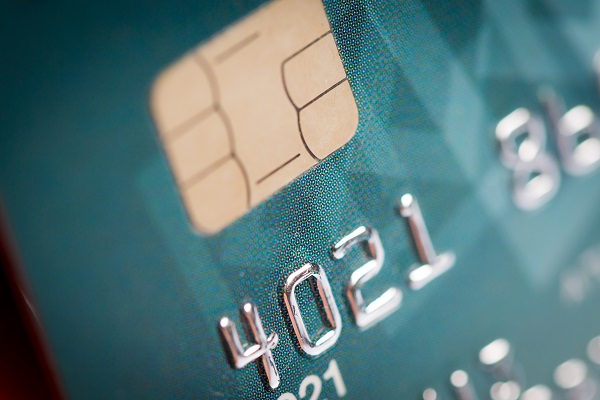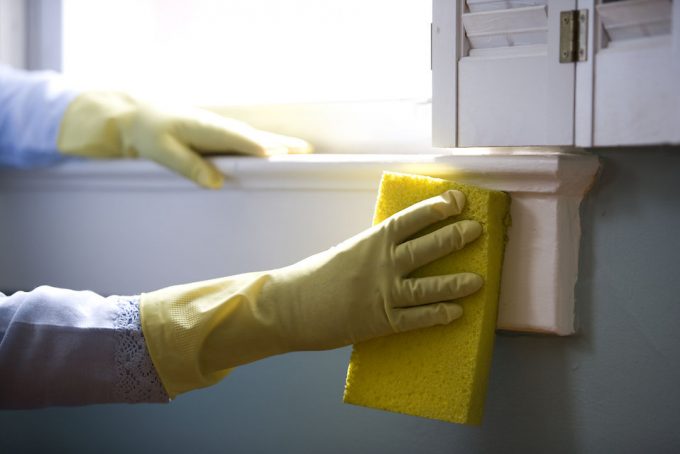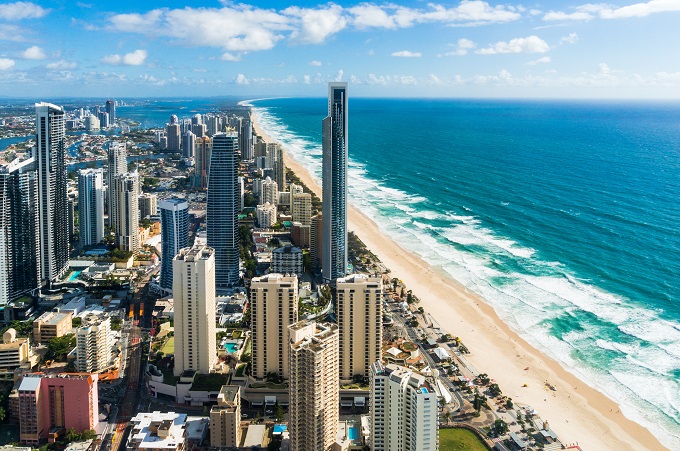
Do new surcharge regulations go far enough?
No-one likes being confronted by extra charges when they check out of their accommodation, especially if it is for something they expected to be provided in the normal course of business or for an extra item that was not used.
Add-on surcharges by accommodation providers are certainly on the increase as they try and recoup “losses” they incur by trying to appear tariff-competitive on internet search engines. By and large, accommodation providers have been shielded from the consumer outrage as the “drip billing” kings – airlines that have taken surcharges to a new level – have copped much of the flack.
With price-sensitive travellers willing to switch hotels based on even a $2 difference in the room rate or a charge for wifi, properties are eager to find other ways to boost revenue as operating costs have been increasing and profits per room haven’t. This is especially so as previous, very lucrative revenue streams, like charges for in-room movies and phone calls, have dried up as guests use their own personal devices.
But probably the most insidious surcharge of all has been the “cost recovery” efforts for paying bills – eftpos and credit card surcharges – that should have been incorporated into any normal business transaction. In effect, businesses are charging for customers paying them.
The latest RBA research into surcharges found the average surcharge for using different cards is:
- 1.9 percent.
- 1.8 percent.
- American Express. 2.9 percent.
- Diners Club. four percent.
Earlier this year, the Reserve Bank of Australia announced regulations aimed at preventing providers from gouging customers on credit card fees in an effort to curb the $1.6 billion Australians fork out on surcharges each year.
From September 1, 2016, surcharges passed on to consumers will now have to reflect the actual cost to the service provider. Booking fees, services fees and other fees commonly charged by airlines, hotels, ticket booking companies and taxis, cannot cost consumers more than the providers are charged themselves, though why these “costs” should not be incorporated into the final cost (as with GST) remains unexplained. Without being paid, businesses would not exist.
The Reserve Bank of Australia Payments System board has now published its Standard that relates to surcharges by providers when charging customers for the use of a credit or debit card. Surcharges will be excessive where they exceed the permitted cost of acceptance, as defined in the Standard.
The Australian Competition & Consumer Commission has confirmed it will begin enforcing the ban on excessive surcharges and penalties will apply to those flouting the regulations. The penalty applicable for listed corporations is $108,000 per contravention, $10,800 for other companies and $2160 for all other merchants.
ACCC chairman Rod Sims said: “In short, the new provisions will limit the amount businesses can surcharge customers for use of payment methods such as most credit and debit cards. The limit will be linked to the direct costs of the payment method such as bank fees and terminal costs.”
The ACCC says the RBA Standard defines what businesses are able to include in setting a surcharge and sets out a two-staged implementation, with the ban commencing on September 1, 2016 for ‘large merchants’ and September 1, 2017 for all other merchants.
The Standard defines a ‘large merchant’ to be one that satisfies at least two of the following requirements: it has a consolidated gross revenue of $25 million or more, the value of its consolidated gross assets is $12.5 million or more, or it employs 50 or more employees.
The Standard will apply to six card systems – eftpos, Debit MasterCard, MasterCard Credit, Visa Debit, Visa Credit and American Express cards issued by Australian banks. The rate that can be charged must be for each particular brand of credit card and cannot be blended across all cards that are accepted.
The ban has no effect on businesses that choose not to impose a payment surcharge, such as the growing number of businesses in Australia that incorporate payment system costs into their overall prices.
Nothing in the Standard alters the existing obligations of businesses to comply with the provisions of the Australian Consumer Law, as set out in the Competition & Consumer Act 2010, that deal with false and misleading representations about the price of goods or services. This includes component pricing that the ACCC states as: “When you present prices to your customers, you must state the total price of the good or service as a single figure, which is the minimum total cost that is able to be calculated. This should include any tax, duty, fee, levy or other additional charges (e.g. GST or airport tax).
One has to wonder why this should also not encompass payment surcharges.
“There are two upshots for the consumer,” ACCC’s Rod Sims says. “The most basic one is that consumers won’t get slugged for credit card surcharges that are above the cost to the retailer. The second and very important one, is that it will make it harder for companies such as airlines and ticket booking agencies to hide fees later down in web pages.
“There’s less incentive for drip pricing if all they can do is recover their costs.”
While the focus would be on “education and awareness” in the early stages, the ACCC “won’t turn a blind eye to possible breaches, particularly for those large businesses clearly on notice of these changes”, he said.
Consumer advocates have welcomed the crackdown, which is hoped to rein in some of the $1.6 billion Australians fork out on surcharges each year. Debit cards surcharges have been reduced to eight cents per transaction, surcharges on regular credit cards have been capped at 0.5 percent, and 0.8 percent for premium Visa and MasterCards.
Consumer group Choice believes consumers have been ripped off by airlines, hotels and ticket merchants for years, with some credit card booking fees marked up by more than 1000 percent. “Qantas, Virgin, Jetstar, Tiger, Ticketek, Ticketmaster, what they’ve been doing is when you pay with your credit card, instead of just recouping the cost of providing that service to you, they’ve been using it as a profit,” Choice spokesperson Tom Godfrey maintains.
The move will cut the cost of airfares, especially cheaper ones, as airlines will only be allowed to pass on the amount it costs them to offer the service — estimated at 0.77 percent of the transaction — rather than a flat fee of up to $30 a flight. Domestic “booking fees” range from $7 a flight on Qantas, $8.50 on Jetstar and Tiger and $7.70 on Virgin with a bigger hit charged for international flights.
On an $85 one-way ticket, Jetstar charges $8.50 but under the new rules that would fall to just 65 cents, based on estimates by consumer group Choice.
Accommodation providers’ charges vary considerably: Mantra impose two percent; Mercure 1.5 percent, others have a fixed dollar rate, while many just incorporate any costs in their tariff to avoid consumer backlash and encourage loyalty.
In the middle of these regulatory changes and general customer backlash, a collective of leading Australian retailers, business associations and advocates have joined forces to launch a new surcharge-free movement that is urging businesses across the country to scrap payment surcharges.
Consumer advocate Christopher Zinn, who is spearheading the Surcharge Free campaign, welcomed the RBA announcement but said some uncertainty remained. “While this announcement following the RBA’s review of card payments regulation addresses excessive surcharges in many large industries, uncertainties remain around surcharging card payments for smaller everyday consumer purchases,” he said. “Additionally, the RBA guidelines do not engage with consumers’ negative feelings toward surcharging or the detrimental impact the practice can have on customer loyalty and advocacy for businesses of all sizes.”
Surcharge Free is encouraging merchants to go one step further than the new guidelines and end payment surcharges altogether. “As we’ve seen, businesses of all shapes and sizes are benefiting from their decision to not surcharge customers, and with the cost of acceptance being reduced the rewards will only increase,” he said.
“Surcharge Free encourages businesses to focus on the bigger picture of the customer experience. The reality is the damage caused by imposing a surcharge can far exceed the costs associated with processing card payments,” Mr Zinn said.
Qantas and Virgin Australia have hit back at widespread claims they gouge passengers with the surcharges they levy on fares paid by credit and debit card, claiming they in fact undercharge customers! Qantas executives said the booking fees they charge per passenger, which range from $7 to $30 on Qantas and offshoot Jetstar, recover only about 80 percent of the full cost per booking. The majority of the booking fee cost is merchant service fees the airlines are charged by banks per credit card transaction but also includes IT costs, fraud losses and other administration costs.
“Qantas recovers less than its total cost of card acceptance,” claims Andrew Parker, group executive government and international affairs. He said the fees covered a broad range of costs, fees and charges include the reasonable costs of accepting payments, payment gateway fees, fraud prevention, processing and accounting fees.
Both airlines also offer fee-free options including POLI and direct debit. However, POLI – which is an instant payment rather than delayed as it is with direct debit – has only recently been introduced. Between 70 percent and 95 percent of customers who book directly with Qantas, Jetstar or Virgin use credit or debit cards.
The airlines also pay fees to accept POLI and other fee-free methods they offer but seem unable to explain why they don’t pass these costs on.
One aspect still needs to be clarified: some providers bundle all of the payment surcharges as a “service fee” and not a payment “surcharge”, which a few claim falls outside the new regulations. This does need testing.
Material on the RBA’s website provides detailed information for businesses about the Standard, including how businesses can identify and quantify those costs that can be passed on to a consumer as a surcharge. The Standard is available at www.rba.gov.au.

AccomNews is not affiliated with any government agency, body or political party. We are an independently owned, family-operated magazine.







Thank you for the heads up on this new regulation! I have passed this info along to our agencies.
It should be noted that most regional accommodation providers have been kindly absorbing the costs of Visa & Mastercard for years, but because Amex charges are higher than VISA/Mastercard, having to levy a surcharge on Amex for only that extra. Please note that our many requests for many years for Amex to moderate their excessive charges have been flatly refused. Perhaps you should focus on them explaining why they charge more than VISA/Mastercard. The higher costs of Amex pays for their rewards, so basically Amex gets the kudos for the rewards and expects the hotel to pay for it. Nice work if you can get it. Hence hotels apply the surcharge. Hotels are simply trying to cope with circumstances forced on them by card companies, so a little less hotel bashing would be appreciated.
We often have people arriving via OTA bookings and argue that they have already paid because they gave their credit card details to secure the booking. Most of them after we explain what happens agree to pay but the odd one digs in their heels and even go online to their account to check their transactions.I have spoken to one OTA to make it clearer when the guest books but they really didn’t want to know anything about it.The OTA’s marketing must be very slick because we have guests phone and ask if it is okay to book direct and not through a OTA. It is also amazing how many guests park out the front and book online and then come in and say we just booked online. Unfortunately we cannot do without them these days, being a country motel without national and international connections apart from our web site they are a prime source of our revenue.